Filter by
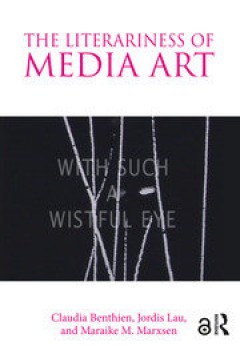
The Literariness of Media Art
The beginning of the 20th century saw literary scholars from Russia positing a new definition for the nature of literature. Within the framework of Russian Formalism, the term ‘literariness’ was coined. The driving force behind this theoretical inquiry was the desire to identify literature—and art in general—as a way of revitalizing human perception, which had been numbed by the automat…
- Edition
- -
- ISBN/ISSN
- 9781315107981
- Collation
- -
- Series Title
- -
- Call Number
- 410
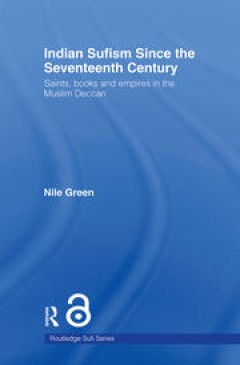
Indian Sufism since the Seventeenth Century
ABSTRACT Sufism is often regarded as standing mystically aloof from its wider cultural settings. By turning this perspective on its head, Indian Sufism since the Seventeenth Century reveals the politics and poetry of Indian Sufism through the study of Islamic sainthood in the midst of a cosmopolitan Indian society comprising migrants, soldiers, litterateurs and princes. Placing the mystical…
- Edition
- -
- ISBN/ISSN
- 9780203965368
- Collation
- -
- Series Title
- -
- Call Number
- -
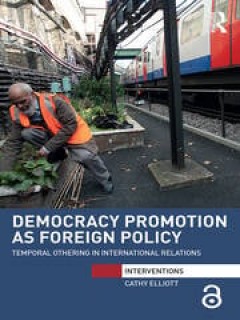
Democracy Promotion as Foreign Policy
ABSTRACT This book looks at democracy promotion as a form of foreign policy. Elliott asks why democracy was seen to be the answer to the 7/7 bombings in London, and why it should be promoted not in Britain, but in Pakistan. The book provides a detailed answer to these questions, examining the logic and the modes of thinking that made such a response possible through analysis of the stories we …
- Edition
- -
- ISBN/ISSN
- 9781315618050
- Collation
- -
- Series Title
- -
- Call Number
- -

Generational Tensions and Solidarity Within Advanced Welfare States
ABSTRACT This book explores generation as both a reference to family or kinship structures, and a reference to cohorts or age sets. The principal objective is branching out this two-part concept through studies of tensions and solidarity within and between generations of advanced and robust welfare states. Answering key questions using multiple disciplinary approaches, the book considers ho…
- Edition
- -
- ISBN/ISSN
- 9781003129592
- Collation
- -
- Series Title
- -
- Call Number
- -
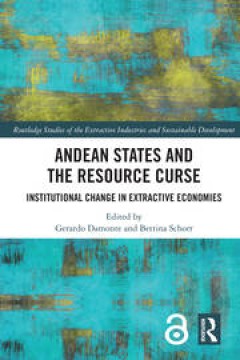
Andean States and the Resource Curse
ABSTRACT This volume explores institutional change and performance in the resource-rich Andean countries during the last resource boom and in the early post-boom years. The latest global commodity boom has profoundly marked the face of the resource-rich Andean region, significantly contributing to economic growth and notable reductions of poverty and income inequality. The boom also constit…
- Edition
- -
- ISBN/ISSN
- 9781003179559
- Collation
- -
- Series Title
- -
- Call Number
- -
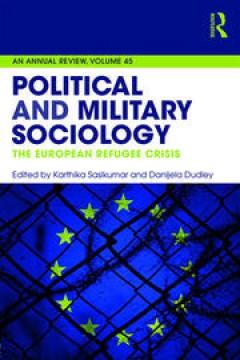
Political and Military Sociology
ABSTRACT This special edition of Political and Military Sociology: An Annual Review encompasses a full range of coverage on the European refugee crisis. Contributions include a focus on the characteristics and motivations of modern-day migrants, an analysis of the inconsistent standards displayed by the European Union, and the militarization happening across parts of Europe in response. The…
- Edition
- -
- ISBN/ISSN
- 9780429463105
- Collation
- -
- Series Title
- -
- Call Number
- -
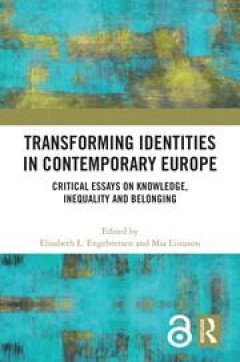
Transforming Identities in Contemporary Europe
ABSTRACT Interdisciplinary in perspective, this book explores contemporary struggles around ‘identity politics’ in Europe, offering a unique glimpse into contemporary tensions and paradoxes surrounding identities, belonging, exclusions and their deep-seated gendered, colonial and racist legacies. With a particular focus on the Nordic region, it provides insights into the ways in which peop…
- Edition
- -
- ISBN/ISSN
- 9781003245155
- Collation
- -
- Series Title
- -
- Call Number
- -

Critical Care: Architecture and Urbanism for a Broken Planet
How architecture and urbanism can help to care for and repair a broken planet: essays and illustrated case studies. Today, architecture and urbanism are capital-centric, speculation-driven, and investment-dominated. Many cannot afford housing. Austerity measures have taken a disastrous toll on public infrastructures. The climate crisis has rendered the planet vulnerable, even uninhabitable. …
- Edition
- -
- ISBN/ISSN
- 9780262352871
- Collation
- -
- Series Title
- -
- Call Number
- 720 CRI
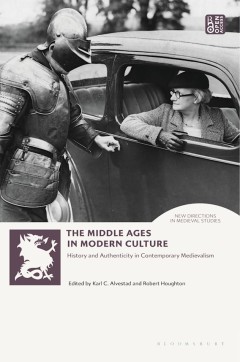
The Middle Ages in Modern Culture : History and Authenticity in Contemporary …
This open access book brings together an international team of experts, The Middle Ages in Modern Culture considers the use of medieval models across a variety of contemporary media – ranging from television and film to architecture – and the significance of deploying an authentic medieval world to these representations. Rooted in this question of authenticity, this interdisciplinary study …
- Edition
- -
- ISBN/ISSN
- 9781788314787
- Collation
- 288 halaman
- Series Title
- -
- Call Number
- 300 MID

Theorizing Cultures of Political Violence in Times of Austerity
ABSTRACT After the multidimensional financial crisis of 2008, the member states of the Eurozone imposed a set of economic policies to save their economies. Socially unpopular cuts contributed to the occurrence of violent movements that both opposed austerity policies and created animosity towards the politicians who implemented them. Combining qualitative and quantitative comparative analys…
- Edition
- -
- ISBN/ISSN
- 9781351205757
- Collation
- -
- Series Title
- -
- Call Number
- -
 Computer Science, Information & General Works
Computer Science, Information & General Works  Philosophy & Psychology
Philosophy & Psychology  Religion
Religion  Social Sciences
Social Sciences  Language
Language  Pure Science
Pure Science  Applied Sciences
Applied Sciences  Art & Recreation
Art & Recreation  Literature
Literature  History & Geography
History & Geography